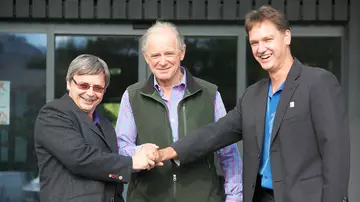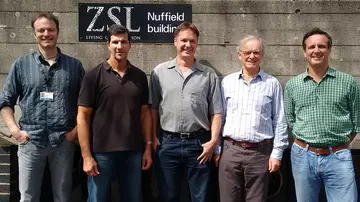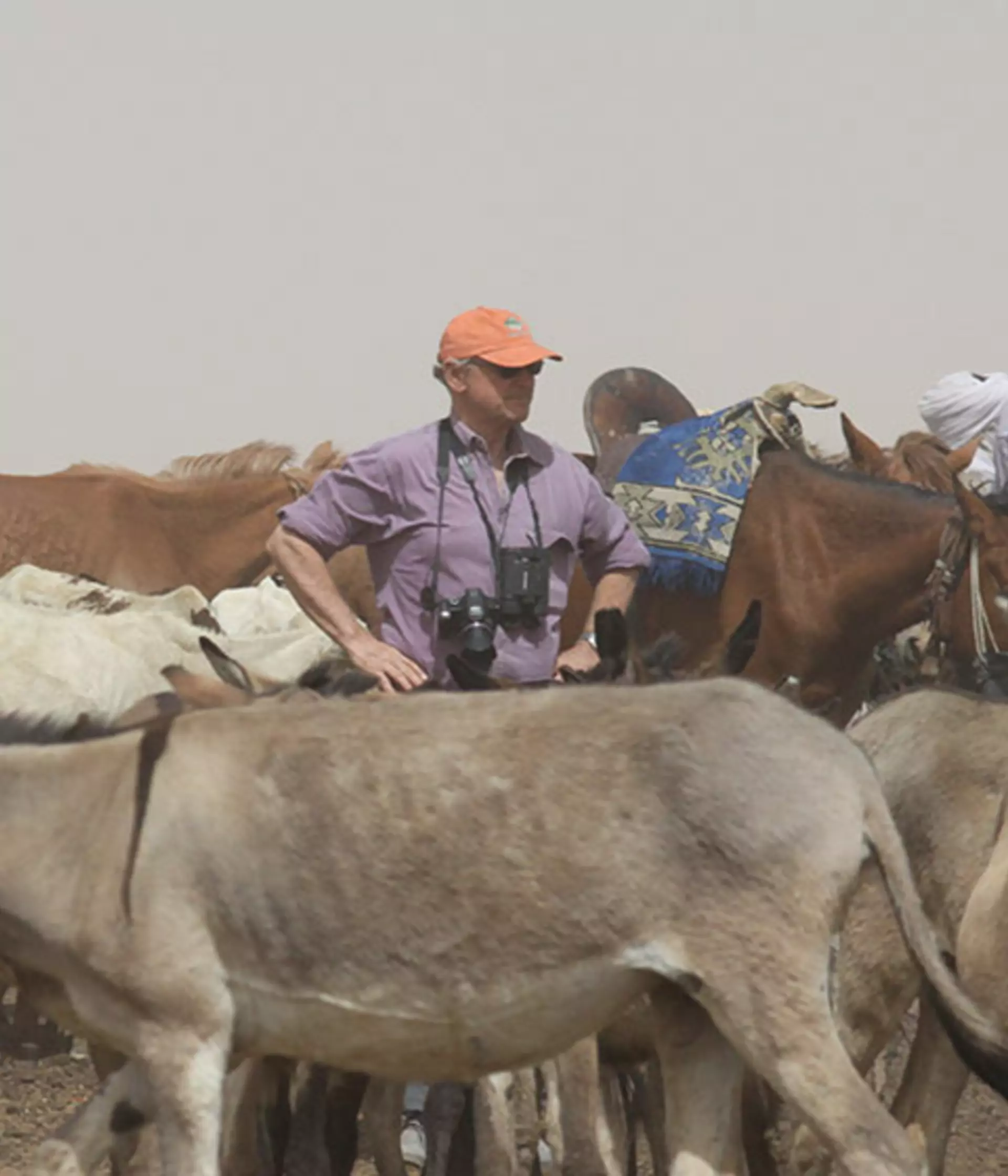
ZSL is deeply saddened to hear of the passing of Dr Mark Stanley Price, who died on 13 December 2022.
Mark, a recipient of the ZSL Award for Conservation Innovation in 2017, was a lover of antelopes, a trailblazer of reintroduction science, and a friend and mentor to many.
Mark was widely regarded as a conservation pioneer. Following a PhD on the feeding ecology of Coke’s Hartebeest in Kenya and critical work investigating domestication and ranching of Fringe-eared Oryx, Mark moved to Oman in 1979 to oversee an ambitious recovery project to reintroduce the then Extinct in the Wild Arabian Oryx back into native range. This pioneering contribution, which depended upon captive oryx populations, helped strengthen the conservation mandate of zoos around the world. After nearly a decade of work leading these efforts, he then founded, and chaired, what is now the IUCN SSC Conservation Translocations Specialist Group (formerly the Re-introduction Specialist Group), a role he played for 12 years before handing over the reins.

If recovering a species from Extinct in the Wild, and founding what is today a highly regarded specialist group, were not enough, Mark’s other lasting legacy is the key role he played as overseer of an IUCN Task Force to produce the IUCN Guidelines for Reintroductions and other Conservation Translocations, now available in 7 languages and widely considered one of the most influential guidance documents IUCN has ever produced.
John Ewen, a senior Research Fellow with ZSL’s Institute of Zoology, recalls Mark’s contributions on his own work. “Mark started a journey that has gathered a global community (still growing) with a focus on using powerful conservation translocation tools including reintroduction to recover wildlife and ecosystems. He combined action with good thinking, such that these tools are increasingly applied responsibly to reap the rewards they promise. He led by example and his book on Arabian Oryx has pride of place in my bookshelf. The reintroduction guidelines he wrote and the IUCN specialist group he got off the ground have flourished and evolved but with one constant – Mark remained a part of this and enthusiastically helped drive these changes.”
Following his stint in Oman, Mark took a role as Director of Operations for Africa with the African Wildlife Foundation before moving to Durrell Wildlife Conservation Trust as its CEO in 2001, which he led until his move to the Wildlife Conservation Research Unit (WildCRU) in Oxford in 2008. From Oxford, he became more active in IUCN activities, leading the revision of the aforementioned IUCN conservation translocation guidelines, but also chairing committee on species conservation planning ultimately culminating in the publication of guidelines for species planning in 2017. Mark also played key advisory roles on many organizations, including Marwell Wildlife, Sahara Conservation Fund, and the World Land Trust.

Mark also had a long association with ZSL. He was an Honorary Conservation Fellow with ZSL, played a lead role in the ZSL symposium to celebrate the first 10 years of Arabian oryx reintroduction in Oman, and frequently spoke at or attended events, most recently at a ZSL symposium on reintroductions in 2017. ZSL’s senior conservation biologist, Tim Wacher, recalls “It was entirely thanks to Mark that I got an opportunity to work in antelope conservation in the first place back in 1978. Before leaving Kenya for Oman, Mark had proposed and devised the first detailed field study of Fringe-eared Oryx. From the moment we met to discuss this project, his friendly and positive approach made a major impact. It is no surprise to all who knew him that Mark’s interest and support to all ZSL’s antelope conservation activity has been continuous. It was a particular pleasure to travel in the field with Mark in 2012 when he visited the proposed Scimitar-horned Oryx re-introduction site in Chad and subsequently participated in the national planning meeting in N’Djamena, where the decision to go ahead with the oryx reintroduction was endorsed. This year Mark was particularly active in identifying and supporting ambitious new plans for conservation of the Critically Endangered Dama Gazelles, which share the oryx habitats. I will greatly miss his ongoing advice, support, and many highly enjoyable discussions about the subjects he loved and influenced so positively.’

Mark is often remembered for his kindly spirit, his eagerness to help, his ability to find consensus, and for being a true gentleman of conservation. “Over the years I had the privilege to work with Mark on various projects and always found his company genuine, kind and enthusiastic, his insights clear and powerful.” recalls John Ewen. “We were usually brought together to help try and solve tricky problems often including substantial conflict between those involved – Mark was amazing at finding the way and helping bring passionate people together to an agreed goal. I learnt a lot from Mark and will miss him. There will shortly be a new book on my bookshelf on Conservation Translocations, one that Mark was very keen on and has contributed to. We hoped it would be ready for him to see. Being published this week made it so close! It will now stand as a final word from Mark encouraging us all to embrace responsible conservation translocation”.
To the many who knew and worked with him throughout his career, Mark (his smile, his cheery demeanour, his insights, and his collegiality) will be sorely missed. Our thoughts are with his wife, Karen, and daughters Tessa and Freya.
From lab to field, hands on and behind the scenes, we’re delivering innovative science-driven conservation - identifying species most at risk, understanding the underlying causes, and finding practical solutions that have real impact in the UK and around the world.
